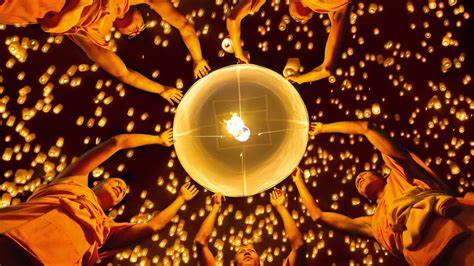In every corner of the globe, cultures come alive through the vibrant tapestry of festivals and celebrations. From ancient traditions to modern spectacles, these events offer a glimpse into the heart and soul of a community, showcasing its values, beliefs, and creativity in colorful and dynamic ways.
Each culture boasts its own array of unique festivals, each with its own rituals, symbolism, and significance. From the mesmerizing lights of Diwali in India to the flamboyant costumes of Carnival in Brazil, and the solemn processions of Semana Santa in Spain to the joyous music of Oktoberfest in Germany, cultural festivals offer a kaleidoscope of experiences that captivate the senses and ignite the spirit.
One of the most intriguing aspects of cultural festivals is their ability to bring communities together in celebration and solidarity. Whether it’s the sharing of traditional foods and drinks, the rhythmic beats of music and dance, or the elaborate decorations and costumes, these events create a sense of unity and belonging that transcends language, nationality, and creed.

Yet, behind the spectacle and revelry lies a deeper significance rooted in history, mythology, and tradition. From the ancient rituals of fertility festivals to the commemoration of historical events and religious ceremonies, each festival carries with it a rich tapestry of stories and symbols that reflect the cultural identity and heritage of its people.
Furthermore, cultural festivals play a vital role in preserving and transmitting cultural knowledge and traditions from one generation to the next. Through participation in rituals and ceremonies, storytelling, and the passing down of artisanal skills, communities ensure the continuity of their cultural heritage, keeping alive the customs and practices that define who they are.
In an increasingly globalized world, cultural festivals also serve as important platforms for intercultural dialogue and exchange. By inviting visitors from around the world to experience their unique traditions and customs, communities foster mutual understanding, appreciation, and respect for cultural diversity, breaking down barriers and building bridges between people of different backgrounds and beliefs.
Ultimately, cultural festivals are more than just celebrations; they are expressions of identity, creativity, and resilience that connect us to our past, enrich our present, and inspire our future. As we marvel at the spectacle of fireworks, dance to the rhythm of drums, and savor the flavors of exotic cuisines, let us remember the rich tapestry of cultures that unite us as a global community, celebrating our differences and embracing our shared humanity.
